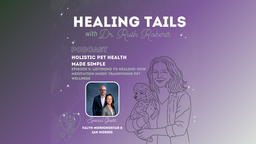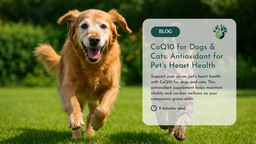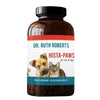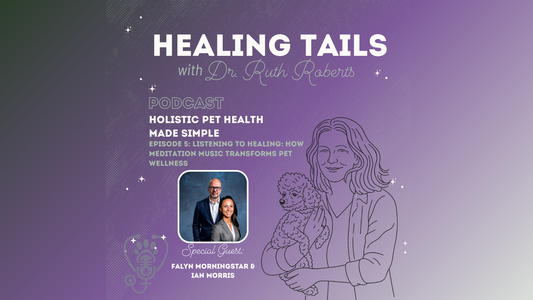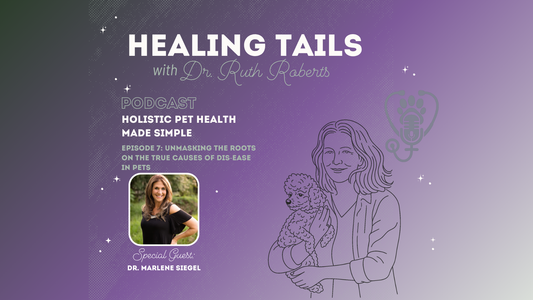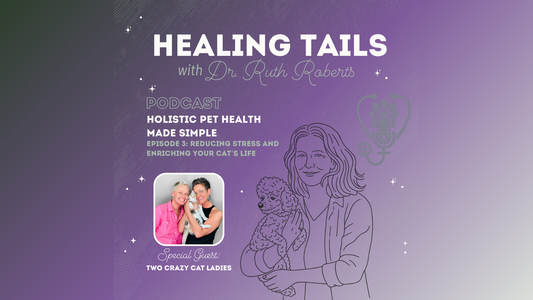Antioxidants are one of the most powerful tools in your pet’s health arsenal. They work by neutralizing free radicals, unstable molecules that can damage cells and accelerate aging. Free radicals are a natural byproduct of metabolism, but factors like poor diet, environmental toxins, and chronic stress can increase their production, leading to oxidative stress. Over time, this can contribute to chronic diseases like cancer, arthritis, heart disease, and cognitive decline.
The good news? Antioxidants can help combat oxidative stress, supporting your dog or cat’s immune system, energy levels, and overall vitality. Let’s explore the best antioxidants for pets and how they can make a difference in your furry friend’s life.
1. Vitamin E: The Skin and Coat Protector
Vitamin E is a fat-soluble antioxidant that plays a critical role in protecting cell membranes from oxidative damage. It’s particularly beneficial for maintaining healthy skin and a shiny coat, as well as supporting immune function.
-
Benefits: Reduces inflammation, supports cardiovascular health, and promotes skin healing.
-
Sources: Found in foods like sunflower seeds, spinach, and salmon. It’s also available as a supplement for pets.
-
Tip: Look for natural vitamin E (d-alpha-tocopherol) rather than synthetic forms, as it’s more bioavailable for your pet.
2. Vitamin C: The Immune Booster
While dogs and cats can produce their own vitamin C, supplementation can be beneficial, especially during times of stress or illness. Vitamin C is a water-soluble antioxidant that helps regenerate other antioxidants like vitamin E and supports collagen production for joint and skin health.
-
Benefits: Boosts immune function, reduces inflammation, and supports joint health.
-
Sources: Found in small amounts in fruits and vegetables like blueberries, broccoli, and parsley. Supplementation may be needed for therapeutic effects.
-
Tip: Use buffered vitamin C (calcium ascorbate) to avoid gastrointestinal upset in pets.
3. Coenzyme Q10 (CoQ10): The Cellular Energizer
CoQ10 is a naturally occurring antioxidant that supports mitochondrial function—the energy factories of cells. It’s particularly beneficial for pets with heart disease, cognitive decline, or chronic fatigue.
-
Benefits: Supports heart health, brain function, and overall energy levels.
-
Sources: Found in small amounts in organ meats like liver and heart. Ubiquinol, the active form of CoQ10, is the most bioavailable option for pets.
-
Tip: CoQ10 is fat-soluble, so give it with a meal containing healthy fats for better absorption.
4. Omega-3 Fatty Acids: The Inflammation Fighters
While not traditionally classified as antioxidants, omega-3 fatty acids from fish oil or algae oil have potent anti-inflammatory properties that complement antioxidant activity. They’re particularly beneficial for pets with arthritis, allergies, or skin issues.
-
Benefits: Reduces inflammation, supports brain and heart health, and promotes a healthy coat.
-
Sources: Found in fish like salmon and sardines, or in high-quality fish oil or algae oil supplements.
-
Tip: Choose a product that’s been tested for heavy metals and contaminants to ensure safety.
5. Medicinal Mushrooms: Nature’s Immune Modulators
Medicinal mushrooms like reishi, turkey tail, and shiitake are rich in beta-glucans, compounds that enhance immune function and provide antioxidant support. They’re particularly beneficial for pets with cancer, chronic infections, or weakened immune systems.
-
Benefits: Modulates the immune system, reduces inflammation, and supports overall vitality.
-
Sources: Available as powders, capsules, or tinctures specifically formulated for pets.
-
Tip: Look for organic, high-quality mushroom supplements to avoid contaminants.
6. Turmeric and Curcumin: The Golden Healers
Turmeric, and its active compound curcumin, is a powerful antioxidant and anti-inflammatory agent. It’s particularly beneficial for pets with arthritis, cancer, or chronic inflammation.
-
Benefits: Reduces inflammation, supports joint health, and protects against oxidative damage.
-
Sources: Turmeric can be added to your pet’s food, but curcumin supplements with added bioperine (black pepper extract) and a fat source like coconut oil are more bioavailable.
-
Tip: Start with small amounts to avoid gastrointestinal upset and gradually increase the dose.
7. Astaxanthin: The Super Antioxidant
Astaxanthin is a carotenoid derived from microalgae and is considered one of the most potent antioxidants available. It’s hundreds of times more powerful than vitamin C or vitamin E in neutralizing free radicals.
-
Benefits: Supports eye health, reduces inflammation, and protects against UV damage.
-
Sources: Found in krill oil or as a standalone supplement.
-
Tip: Astaxanthin is fat-soluble, so give it with a meal containing healthy fats for optimal absorption.
8. Green Tea Extract: The Cancer Fighter
Green tea is rich in polyphenols, particularly epigallocatechin gallate (EGCG), which has powerful antioxidant and anti-cancer properties. It’s particularly beneficial for pets with cancer or those at risk of developing it.
-
Benefits: Reduces oxidative stress, supports cardiovascular health, and may slow tumor growth.
-
Sources: Available as a supplement or brewed as a weak tea (ensure it’s caffeine-free).
-
Tip: Use green tea extract formulated for pets to ensure safe dosing.
9. C60 (Carbon 60): The Cellular Protector
C60 is a relatively new antioxidant that’s gaining attention for its ability to neutralize free radicals and support cellular health. It’s particularly beneficial for pets with chronic illnesses or those in their golden years.
-
Benefits: Supports immune function, increases energy levels, and promotes longevity.
-
Sources: Available as a supplement infused in carrier oils like olive oil or coconut oil.
-
Tip: Start with a low dose and monitor your pet’s response, as even small amounts can have significant effects.
Scientific Evidence for Top Antioxidants in Dogs and Cats
|
Antioxidant |
Main Claim / Benefit |
Supporting Studies & Citations |
|
Vitamin E |
Protects cells, skin, and immune system; reduces oxidative damage |
• Antioxidant blend with vit E + C + β-carotene reduced DNA damage and boosted antioxidant status in dogs and cats【PMC11185959】• Working dogs supplemented with vitamin E had lower oxidative stress markers【PMC5508397】• Cats with CKD showed no survival change with vit E alone【BMC Vet Res 2024; 41:176】 |
|
Vitamin C |
Boosts immunity and regenerates other antioxidants (vit E) |
• Combined vit E + C + β-carotene lowered oxidative DNA damage in pets【PMC11185959】• Reviews show vit C enhances antioxidant enzymes under stress【MDPI Antioxidants 2023; 12(3):545】 |
|
Coenzyme Q10 (CoQ10) |
Supports heart function, reduces inflammation, and improves mitochondrial/antioxidant balance |
• In Cavalier King Charles Spaniels with congestive heart failure, myocardial CoQ10 levels were significantly reduced, suggesting supplementation may restore cardiac antioxidant balance【PubMed 33499156】 • In dogs with myxomatous mitral valve disease, CoQ10 supplementation improved cardiac function and lowered inflammatory markers【Thai J Vet Med 2018】 • In a controlled animal Alzheimer’s model, CoQ10 (alone and with curcumin) enhanced learning, memory, and antioxidant enzyme activity【PMC10216191】 |
|
Omega-3 Fatty Acids (EPA / DHA) |
Reduce inflammation, support brain and heart health |
• Feline OA trial: omega-3 + turmeric diet improved mobility, no side effects【PMC11591455】• Cognitive-aging reviews: omega-3s reduce lipid peroxidation and protect neurons【PMC12181554】• Antioxidant balance improves when paired with vit E【PMC7838757】 |
|
Medicinal Mushrooms |
Enhance immune response and provide antioxidant protection |
• Mushroom bioactives like β-glucans and polysaccharides boost antioxidant enzymes and reduce oxidative stress【PMC11220243】 • Reviews show mushrooms (e.g. reishi, shiitake) exert antioxidant and immunomodulatory effects across species【PMC6331815】 |
|
Turmeric / Curcumin |
Anti-inflammatory and antioxidant; supports joint and metabolic health |
• Cat OA trial: turmeric + omega-3 improved comfort/mobility【PMC11591455】• Diabetic dogs: curcumin improved GSH/GSSG ratio (antioxidant balance)【PMC9816143】• Curcumin safe in canine diets, reduced food oxidation【PubMed 32602378】 |
|
Astaxanthin |
Potent antioxidant; supports skin, immune, and metabolic health |
• Dogs given astaxanthin (0.3 mg/kg/day) had lower lipid peroxidation & triglycerides【PMC6385744】• Absorbed and distributed in plasma and immune cells in dogs & cats【PMC2898833】• Enhanced immune markers (IgG, NK activity) in dogs【ResearchGate 49731144】 |
|
Green Tea Extract (EGCG) |
Provides antioxidant and anti-inflammatory support; may improve joint health and reduce oxidative stress |
• In a double-blind, placebo-controlled study, dogs fed a diet supplemented with green tea extract, curcuminoids, and collagen showed improved mobility and joint biomarkers compared to controls【BMC Vet Res 2017】 |
|
C60 (Carbon 60) |
Neutralizes free radicals, supports mitochondrial protection |
• Preclinical animal studies show C60 reduces oxidative stress and extends lifespan; no direct dog/cat data yet (various lab studies 2021-2024). |
How to Choose the Right Antioxidants for Your Pet
When selecting antioxidants for your dog or cat, consider their specific health needs, age, and lifestyle. For example:
-
A senior pet with arthritis may benefit from turmeric, omega-3s, and CoQ10.
-
A pet recovering from illness may need immune-boosting mushrooms and vitamin C.
-
A pet with cancer may benefit from astaxanthin, green tea extract, and medicinal mushrooms.
Final Thoughts
Antioxidants are a vital part of a holistic approach to pet health, helping to combat oxidative stress and support overall wellbeing. By incorporating antioxidant-rich foods and supplements into your pet’s diet, you can help them live a longer, healthier life.
If you’re not sure which antioxidants are best for your dog or cat, our HPHC Coach can help you design a personalized nutrition plan that fits your pet’s unique health goals and lifestyle.
Antioxidants work best when paired with a balanced, species-appropriate diet — that’s why we recommend starting with the original CrockPet Diet Recipe, crafted to naturally boost your pet’s antioxidant intake through whole-food ingredients.
✨ Book a free consultation with an HPHC Coach today and discover how simple nutrition changes can help your furry friend live a longer, more vibrant life.




